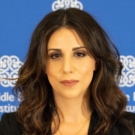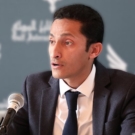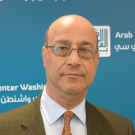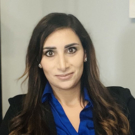Speakers

Sama’a Al-Hamdani
Yemen Analyst and Media Commentator

Nabeel Al-Nowairah
Research Associate
Gulf International Forum
Moderator
Event Summary
On September 11, 2019 Arab Center Washington DC (ACW) hosted a panel discussion at the National Press Club titled “The Future of Yemen: Between Internal Divisions and External Interference.” The speakers were Nabeel Al-Nowairah, research associate at the Gulf International Forum; Sama’a Al-Hamdani, director of the Yemen Cultural Institute for Heritage and the Arts and a nonresident scholar at the Middle East Institute; and Kristian Coates Ulrichsen, Middle East fellow at the Baker Institute, Rice University, and a nonresident senior fellow at ACW.
Tamara Kharroub, ACW assistant executive director and senior fellow, welcomed the speakers and audience. Imad K. Harb, ACW’s director of research, introduced the speakers and moderated the panel. He said the current war is an outgrowth of Yemen’s version of the 2011 Arab Spring that demanded a transition from former President Ali Abdullah Saleh’s authoritarian rule and of the military intervention of Saudi Arabia, the United Arab Emirates, and their coalition that purportedly wanted to restore the legitimate authority of President Abdrabbuh Mansour Hadi to Sanaa. If southern secessionists are successful, he noted, the Yemeni state and its unified central authority would be dismembered.
Nabeel Al-Nowairah offered context for the current Yemeni crisis, starting with a discussion of the country’s main political factions: the General People’s Congress of former President Saleh, the Islah party (originally a branch of the Muslim Brotherhood), the Southern Transitional Council that is supported by the UAE and wants to secede from the north, and the Houthis who lead an insurgency against Hadi’s government. He argued that the Saudi-led coalition has failed to achieve most of its objectives and that the Houthis are in an even stronger position than before while the Hadi government is the weakest element in the equation. Al-Nowairah predicted that the war would end by next year when everyone, including the Saudis, realizes that a military solution is not possible. He said that it is not clear what Yemen will emerge, united, split in two, or federated. Importantly, Al-Nowairah argued that the Hadi government has no future in Yemen because of its weakness and unpopularity; but the Houthis will play a role in any future arrangement. He also reminded the audience that Yemen is principally a democracy with presidential elections and any future political agreement should preserve that important practice.
Sama’a Al-Hamdani reminded the audience that the Houthis’ control over Sanaa is approaching its sixth year, a fact she described as alarming. She decried the fracturing of Yemen’s national identity and the undoing of 20 years of development. She stated that men, women, and children are all paying the heavy price of war which is not only internal but also a proxy one between Saudi Arabia and Iran. Al-Hamdani relayed that there are Saudi-Omani, Emirati-Omani, and Saudi-Emirati tensions that reflect on the Yemen crisis. Looking at the current Yemeni government, she contended that President Hadi helped create the crisis because he has been sidelining important actors and voices from the government as well as supporting discriminatory policies that have exacerbated sectarian tensions. She contended that the secessionist STC, which she described as a grassroots movement with many flaws, also has not been inclusive. All the power now is with the Houthis in the north, while no group has a vision for the future. The economic and humanitarian crisis is the worst in the world since 2016 and it continues to deteriorate, she said. In particular, food insecurity is very serious in the country and clean water and sanitation are severely compromised. To her, what is needed now is to bring everyone back to the negotiating table. She said the dignity of the Yemeni people must be restored, and Yemenis need to vote and decide their future, a solution that should be supported by Saudi Arabia.
Kristian Coates Ulrichsen explained that border security became an issue for Saudi Arabia after the Houthis and other groups started to shell Saudi territory from Yemen. Although Saudi Arabia’s Mohammed bin Salman and the UAE’s Mohammed bin Zayed were generally in agreement over strategy, decision-making fell apart because of tensions that emerged, and especially as a result of the actions of both countries’ proxy groups. The UAE is making its redeployment of troops in Yemen look like a troop withdrawal to appease Washington; this way, it is responding to political heat from the US Congress and grassroots groups. Ulrichsen likened the UAE’s backing of the STC to its support for separatist movements in Somaliland and Libya. He added that the Trump Administration is frustrated by the lack of follow-through of pledges of humanitarian relief by Saudi Arabia and the UAE; it also wants to focus on Iran as the major regional threat, so Yemen is essentially a “distraction” in regional geopolitics, he noted. The Europeans have increased pressure on them, too, using future arms sales as leverage. Ultimately, Ulrichsen said, US pressure is most important since Riyadh and Abu Dhabi value their strong relations with the Trump Administration. He said more humanitarian assistance and a political solution are needed in Yemen.
Event Photos



